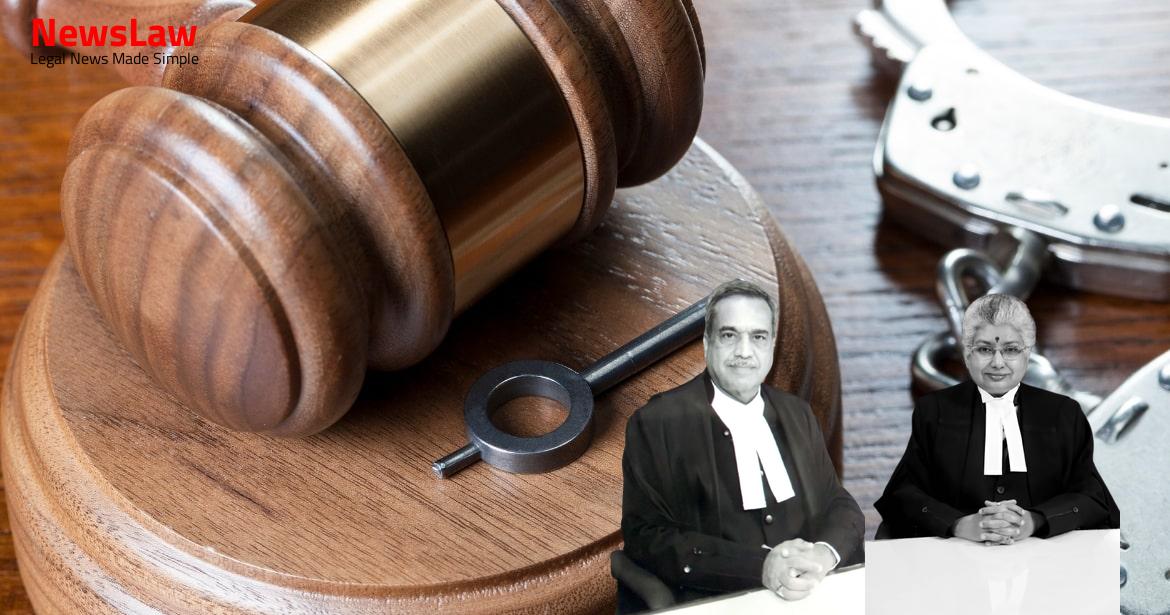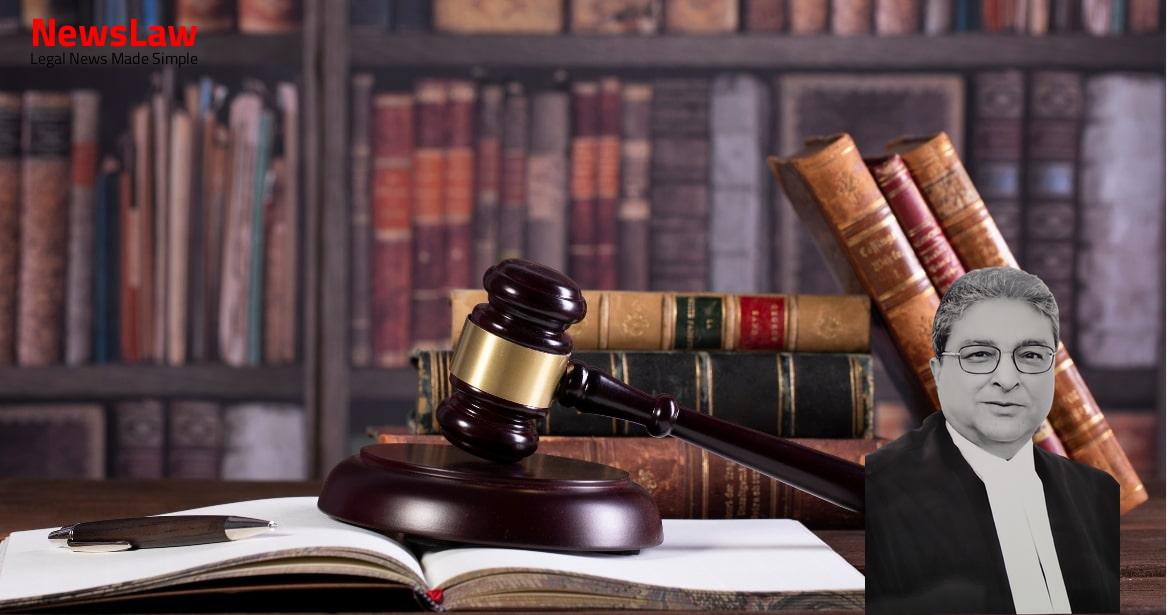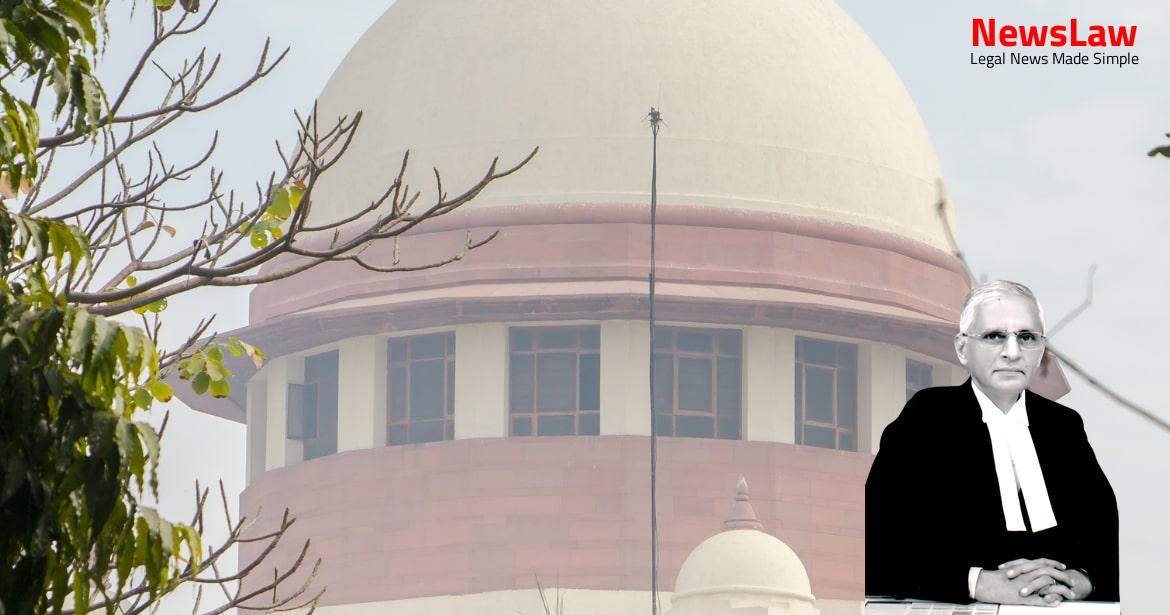The court’s meticulous analysis of arbitration agreement clauses in legal cases plays a pivotal role in determining dispute resolution outcomes. By delving into the intricacies of contractual terms, the court aims to ensure clarity and fairness in resolving disputes. Understanding the nuances of how these clauses are interpreted can provide valuable insights into the legal process and the pivotal role the courts play in upholding the integrity of contracts and agreements.
Facts
- IOCL floated a tender for ‘Civil, Structural & Associated UG piping works of VGO-HDT, DHDT & HCDS Units (EPCM-2) for Paradip Refinery Project’
- IOCL has filed the present appeals
- Common questions of law and facts arise in this group of appeals involving the same parties and similar contracts/agreements
- All appeals are decided together in a common judgment
- The lead matter is the Civil Appeal arising out of Special Leave Petition No.13161/2019 from the High Court’s order in Arbitration Petition No.115/2018
- NCCL was declared the successful bidder in this case
Also Read: Challenging Legal Presumptions in Negotiable Instrument Cases
Issue
- The court will first determine whether the disputes in question are covered by the arbitration agreement.
- This involves examining whether the disputes are within the scope of matters outlined in the arbitration agreement or if they fall under the ‘excepted matters’ that are exempt from arbitration.
- Next, the court will ascertain if the parties involved have indeed referred the disputes to arbitration, as stipulated in the agreement.
Also Read: Legal Analysis of Admission Irregularities in Educational Institutions
Arguments
- The appellant, IOCL, argues that the General Manager is not empowered under the Contract to determine whether a claim is eligible for arbitration based on ‘full and final settlement’ or being an ‘excepted claim’.
- Reference to Section 11(6-A) of the Arbitration Act is made to highlight the limited scope of Court intervention at the stage of appointing an arbitrator, focusing only on the existence of the arbitration agreement.
- Contradictions in Court decisions regarding settled claims and arbitrability are discussed, citing specific cases for and against referral to arbitration.
- The role of the General Manager as per the GCC, refusal to refer ‘Notified Claims’ to arbitration, and the implications of full and final settlement are debated between the parties.
- Points raised by the IOCL regarding settlement, withdrawal of demands, and interpretation of contractual clauses are presented to support their stance on the arbitration dispute.
- The IOCL highlights specific clauses in the GCC to argue that only ‘Notified Claims’ are subject to arbitration, excluding ‘excepted’ disputes from the purview of arbitration.
- Various Court decisions and precedents are cited by both parties to strengthen their arguments on the interpretation of the arbitration agreement and the General Manager’s authority in dispute resolution.
- The IOCL maintains that the claims in dispute, particularly the ‘Notified Claims’, do not qualify for arbitration based on the contractual terms and actions between the parties.
- Reliance on the decision in Datar Switchgears Ltd. v. Tata Finance Ltd. (2000) 8 SCC 151 (Paras 18 and 19)
- Petitioner filed an application challenging the jurisdiction of the Arbitral Tribunal under Sections 16(2) and 16(5) of the Arbitration Act before the Arbitral Tribunal after filing the present petition but before issuance of notice by the Court.
- Petitioner is accused of pursuing two remedies simultaneously by not disclosing the filing before the Arbitral Tribunal.
- Argument based on the doctrine of election of remedies, stating that the petitioner should not be allowed to continue the present proceedings before the Court due to pursuing the Arbitral Tribunal process.
- Respondent disputes petitioner’s contention on “accord and satisfaction” before the payment of the final bill, making the examination of whether “accord and satisfaction” existed between the parties a vital issue.
Also Read: Legal Analysis: Driver Appointment Dispute
Analysis
- The Arbitral Tribunal has jurisdiction and authority to decide disputes, including questions of jurisdiction and non-arbitrability.
- The Court can also consider these aspects at the stage of deciding the Section 11 application if the facts are clear and certain.
- Specific clauses in the agreement can determine arbitrability and excepted matters.
- The High Court’s decision appointing arbitrators was based on the authority and power given to adjudicate the disputes.
- Aspects regarding ‘accord and satisfaction’ of claims can be considered by the Court at the Section 11(6) application stage.
- The General Manager’s decision on Notified Claims is subject to review and can be referred to the Arbitral Tribunal.
- The General Manager’s decision may deem certain claims as waived and not subject to arbitration.
- The principles of judicial review and jurisdiction under Sections 8 and 11 of the Arbitration Act are restricted and limited.
- Disputes on non-payment or extra compensation may be subject to arbitration depending on the arbitration agreement clauses.
- The Court’s inquiry under Section 11 is limited to determining the existence of a binding arbitration agreement between the parties.
- The Court may not delve into the issue of ‘accord and satisfaction’ at the Section 11 stage post the amendments in the Arbitration Act.
- Determining whether a claim is a Notified Claim or not should be decided by the General Manager first before arbitration proceedings can continue.
- The arbitration clause stands extinguished once the final bill amount has been received by the party or a sum has been received on account of Notified Claims.
- Disputes arising out of Notified Claims of the CONTRACTOR in the Final Bill shall be referred to arbitration if the CONTRACTOR has not opted for Alternative Dispute Resolution Machinery.
- The OWNER can prefer its claims against the CONTRACTOR as counter-claims in case of a Notified Claim being referred to arbitration.
- The judgment in Vidya Drolia affirms the law established in previous cases like Duro Felguera and Mayavati Trading.
- The joint intent of the parties to refer disputes to arbitration must be clearly expressed in the contract.
- The nature of the dispute determines whether it can be resolved by arbitration or must be handled by public courts.
- Section 11(6-A) does not prevent making a reference for arbitration.
- Parties cannot claim more than what is covered by the contract terms.
- Courts may conduct a ‘prima facie review’ to weed out frivolous claims before referring to arbitration.
- An arbitration agreement can exist within or outside the contract, but it must be absolute in terms.
- Courts have the power to determine the existence of an arbitration agreement and appoint an arbitrator, as per Section 8 of the Arbitration Act.
- Courts can examine the non-arbitrability of a dispute at the reference stage and may not leave it to the Arbitral Tribunal.
- Party autonomy is vital in arbitration, allowing parties to agree on different laws governing their contract.
- Contract interpretation must adhere to the literal meanings, with no presumption of a contract if not entered into as per legal requirements.
- Vidya Drolia case considered various aspects of restricted arbitration clause
- In cases of unrestricted clauses, all issues raised must be referred to arbitration due to Section 11(6-A)
- Garware case noted that if the contract, including the arbitration clause, is not stamped, the arbitration clause exists in fact but not in law
- The High Court misinterpreted clauses 9.0.1.0 and 9.0.2.0 regarding Notified Claims
- Dispute on whether a claim is a Notified Claim or not is excluded from arbitration agreement
- Any decision by the General Manager on Notified Claims cannot be subject to arbitration
- High Court erred in referring the dispute to arbitration
- Only claims notified in accordance with Clause 6.6.1.0 can be referred to arbitration
Decision
- The impugned judgment and order referring the dispute between the parties to arbitration and appointing the Arbitrator is quashed and set aside.
- Impugned judgments and orders passed by the High Court in Arbitration Petitions No.116/2018, 406/2018, and 407/2018 are quashed and set aside.
- In the case of Arbitration Petition No.407/2018, only one claim declared as a Notified Claim by the General Manager is to be referred to arbitration, and the Arbitrator will only adjudicate on that specific claim.
- Arbitrator to first decide the jurisdiction of the Arbitral Tribunal, the arbitrability of the claims, and the aspect of ‘accord and satisfaction’ within three months from the first sitting.
- Parties are allowed to provide a departmental machinery within the contract for the resolution of certain matters outside the scope of arbitration.
Case Title: INDIAN OIL CORPORATION LIMITED Vs. NCC LIMITED (2022 INSC 735)
Case Number: C.A. No.-000341-000341 / 2022



